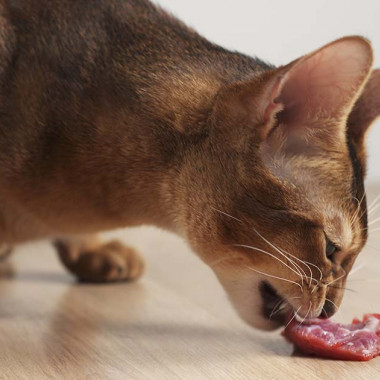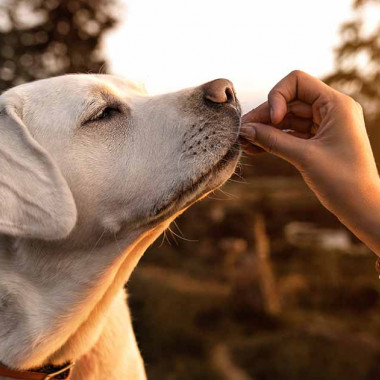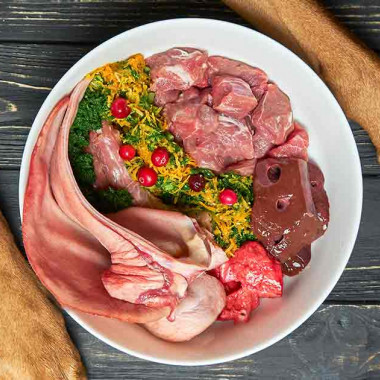Dogs, like their distant relatives, wolves, have a digestive system (including teeth) designed to consume entire prey without any problems. However, selective breeding in some dog breeds has led to changes that make feeding a natural diet more challenging. This is particularly true for brachycephalic breeds, i.e., dogs with short skulls. What makes it more difficult for these breeds compared to others? Read on to find out.
What are brachycephalic breeds?
Brachycephalic (short-skulled) breeds are classified based on the cephalic (cranial) index. This measures the ratio of the length to the width of the dog’s head, where the width of the head in short-skulled breeds typically constitutes at least 80% of its length.
Brachycephalic breeds include the Bordeaux Mastiff, German Boxer, English Bulldog, French Bulldog, Pug, Boston Terrier, Shih Tzu, Tibetan Spaniel, Brussels Griffon, and others.
These dogs often have breathing difficulties and are more sensitive to heat.
Feeding brachycephalic breeds
BARF (Biologically Appropriate Raw Food) is suitable for all dog breeds and all age groups. However, with brachycephalic breeds, special care must be taken when feeding bones and larger pieces of meat.
Short-skulled breeds have altered anatomical proportions of the head and jaws, which make it difficult for them to chew bones effectively and safely. Therefore, it is recommended to feed them ground bones mixed with meat. In our e-shop, you can find products like Ground Beef with Poultry (muscle meat, offal, bones), Ground Rabbit, and other ground mixes suitable not only for brachycephalic breeds but also for dogs new to BARF, senior dogs, and puppies.
If we want to provide some fun for these short-skulled dogs, allowing them to exercise their chewing muscles and partially clean their teeth, we can give them larger, harder bones to gnaw on. You could try offering something like this Giant Beef Bone, which still has meat remnants attached.
Meat for these breeds should also not be given in large chunks but cut into smaller pieces or served ground.
Overweight and allergies in brachycephalic breeds
Many brachycephalic breeds are more prone to weight gain. Therefore, providing high-quality food in the right quantities is crucial. It is especially important to monitor the weight of dogs with reduced activity due to breathing problems, as excess weight can further exacerbate these issues.
Another common problem is allergies. French Bulldogs, in particular, need extra care when it comes to what goes into their food bowl. This breed frequently suffers from food allergies. The most common allergens are found in cheap dog foods, such as wheat, corn, and soy. These ingredients can cause gas and skin problems in dogs. Even in a BARF diet, it’s best to avoid ingredients like wheat-based pasta for this breed.










